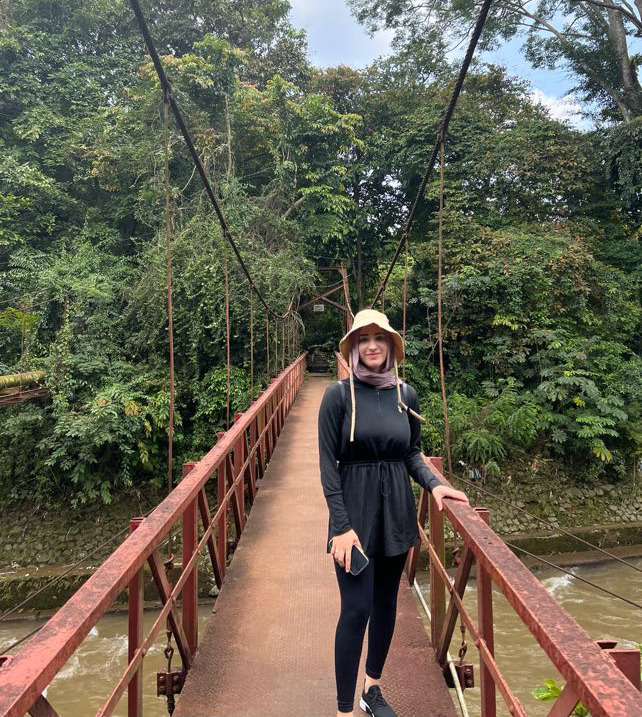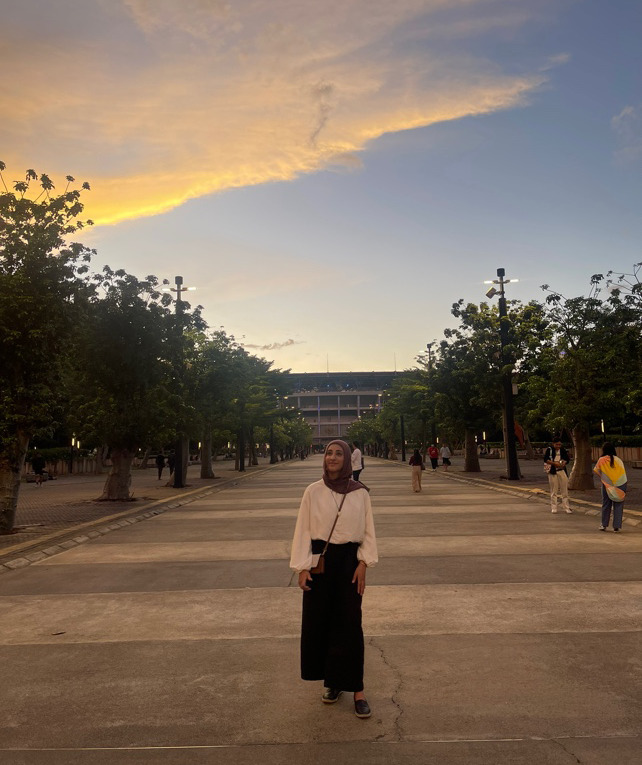A New Colombo Plan (NCP) scholar will highlight the role newborn screening can play in advancing gender equality when she speaks at the 67th UN Commission on the Status of Women this week.
In a parallel session held on the eve of International Women’s Day, Fatima Idaayen will share her experience interning at non-government organisation (NGO) Caring and Living As Neighbours (CLAN), where she supported the development of a newborn screening program in Indonesia.
Fatima spent six months at CLAN, who work closely with the Indonesian Ministry of Health and the International Paediatrics Association, to help explore how newborn screening could improve early diagnosis and access to intervention and treatment for families in Indonesia.
The Macquarie University student says witnessing the impact of something so simple – conditions like congenital adrenal hyperplasia (CAH) are detected through a blood test when a baby is only a few days old – that could save families from so much heartache and loss, had a profound effect on her.
“I worked on a research project that explored the psychological impact of a late diagnosis of CAH,” Fatima says.
“As part of that, I got to speak to 40 families who’ve had children with either an early diagnosis through newborn screening or a late diagnosis. There were so many families who had lost three or four children due to the late diagnosis of the condition.
“Once they had access to newborn screening and were able to see a doctor who understands CAH, the families were able to get an early diagnosis and their babies were able to receive life-saving treatment.
“These families were just so grateful that at least the one child lived. Their ability to get through that, the strength they showed – that was so powerful.”
In high-income countries like Australia, newborn screening is universal, and children born with CAH can expect to enjoy a quality and duration of life on par with that of children born without the condition. Yet in lower-income countries like Indonesia, many babies will die from the condition due to the lack of early diagnosis and treatment.
Fatima will virtually join colleagues from the CLAN at the UN Commission on the Status of Women for NGOs in a hybrid event online and in New York at the UN Church Centre on March 7.
Titled ‘Newborn Screening: Responding to the urgent need to leverage existing technology for gender equality’, the event aims to illustrate the theme of this year’s International Women’s Day on 8 March – ‘DigitALL: Innovation and technology for gender equality’.
Fatima hopes by highlighting the research on newborn screening on a global stage, she can be an advocate for women, who are often the most effected by the lack of access to technology like blood tests for babies.
“I want to raise awareness of the impact of late diagnosis of conditions like CAH that can easily be detected and treated with access to the right technology and educational resources,” she says.
“I am also looking forward to bringing awareness to the challenges the women I interviewed faced and sharing how we can combat this through a such a simple solution that has an incredible impact on families, and women in particular.”
When Fatima was awarded her 2021 NCP scholarship, she was a psychology student with her sights set on a career in the discipline.
She now plans to undertake a Master of Public Health in the second half of this year, a career change brought about by her experiences in Indonesia during her NCP program.
“My time in Indonesia made me realise that with psychology, you’re essentially helping on an on an individual level, whereas with public health, you’re helping on that population level,” she says.
“That experience has had such a huge impact on me and changed where I want to go with my career.”
To hear more about Fatima’s work with CLAN and the impact of newborn screening, .








